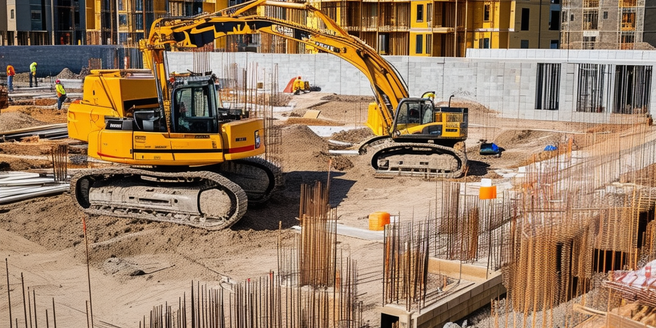Affordable Housing For Singles And Couples

Understanding Affordable Housing
| Aspect | Description | Examples |
| Eligibility | Requirements to qualify for affordable housing | Income limits, family size |
| Types | Different forms of affordable housing | Apartments, townhouses |
| Benefits | Advantages of living in affordable housing | Lower rents, stability |
| Application | Steps to apply for affordable housing | Online forms, interviews |
| Funding | How affordable housing projects are funded | Government grants |
| Regulations | Rules governing affordable housing | State, federal laws |
Benefits of Affordable Housing for Singles
Affordable housing provides a crucial solution for singles in various financial situations. It allows individuals to live independently without the overwhelming burden of high rental costs. For many young professionals, students, and single parents, affordable housing creates an opportunity to save money, invest in education, or pay off debts. Additionally, it enables singles to reside in desirable locations closer to their work or educational institutions. Socially, it fosters a sense of community among tenants who face similar challenges. Affordable housing often includes safe and well-maintained environments, reducing the stress associated with housing instability. Ultimately, the availability of affordable housing ensures that singles can achieve a balanced lifestyle, focusing on personal and professional growth without the constant threat of financial strain.
Benefits of Affordable Housing for Couples
For couples, especially those starting their journey together, affordable housing offers several benefits. It provides an opportunity to create a stable and secure home environment without the significant financial stress that can strain relationships. Couples can better allocate their resources towards building a future, such as saving for a home, starting a family, or investing in education or business ventures. Affordable housing also allows couples to live in communities that offer support systems and amenities such as parks, schools, and community centers. Moreover, it ensures that both partners can pursue their individual and collective goals without compromising their financial well-being. In essence, affordable housing provides a foundation for couples to thrive personally, professionally, and as a unit.
Types of Affordable Housing Options
Affordable housing comes in various forms, each designed to meet different needs and preferences. One common option is subsidized apartments, where rent amounts are reduced based on income and regulated by government or non-profit entities. Another option is affordable homeownership programs, which provide low- to moderate-income families the chance to buy homes at reduced costs. Co-housing communities have also become increasingly popular, where residents share common facilities and responsibilities, creating a supportive environment. Additionally, modular and tiny homes offer cost-effective solutions with lower living expenses and maintenance requirements. Each of these options offers unique benefits and challenges, allowing singles and couples to find the best fit for their lifestyle and financial situation.
Budgeting for Affordable Housing
Effective budgeting is essential for thriving in affordable housing. The first step is to understand your monthly income and expenses accurately. Create a budget that prioritizes rent, utilities, and necessary living expenses while setting aside funds for savings and emergencies. Keep track of expenditures to identify and eliminate unnecessary spending. Regularly reviewing your bank statements can provide additional insights into your spending patterns. Utilize tools and apps to manage finances effectively. It’s also beneficial to avoid high-interest debts that can affect financial stability. Regularly review and adjust the budget based on changes in income or expenses. Adequate planning and disciplined spending habits can ensure that you remain within budget, enhancing your peace of mind and financial health in affordable housing.
Finding Affordable Housing in Your Area
Discovering affordable housing in your area requires research and persistence. Start by checking online listings and websites dedicated to affordable housing. Local housing authorities often have resources and information on available units and eligibility requirements. Community centers and non-profit organizations are also excellent sources of assistance. Networking with friends, family, and acquaintances can lead to potential leads. Social media groups focused on housing can also provide timely updates and opportunities. Attend housing fairs or workshops to learn more about available options and the application process. Ensure that you have all necessary documentation ready to expedite the application process when an opportunity arises. Patience and determination are key in finding a suitable and affordable place to call home.
Government Programs and Incentives
Governments at various levels offer numerous programs and incentives to support affordable housing. These initiatives often include rental assistance programs such as Section 8, which provides vouchers to low-income individuals and families. Tax credits are also available to developers who build affordable housing, thereby increasing the supply of such units. Additionally, some cities implement zoning changes to facilitate the construction of more affordable housing. First-time homebuyer programs offer reduced interest rates and down payment assistance. Some local governments provide grants and subsidies for home repairs and renovations to ensure housing quality. Understanding and accessing these programs can significantly reduce the financial burden of finding and maintaining affordable housing. Staying informed about new policies and programs is essential to maximize these benefits.
Common Challenges and How to Overcome Them
While affordable housing provides substantial benefits, there are common challenges that individuals may face. Scarcity of units can make it difficult to find available housing. Long waiting lists often require considerable patience. Navigating complex eligibility requirements and documentation can be daunting. Awareness of local housing policies and assistance programs can significantly aid in understanding one’s options. To overcome these challenges, individuals should stay proactive by regularly checking listings and maintaining up-to-date application materials. Engaging with housing brokers and community organizations can provide additional support and resources. It’s also crucial to remain flexible and open-minded about different housing options and locations. By staying informed and persistent, individuals can better navigate the hurdles associated with securing affordable housing.
Success Stories: Real-Life Examples
Success stories from individuals who have benefited from affordable housing highlight its positive impact. For instance, Jane, a single mother, was able to move into a subsidized apartment, allowing her to pursue further education and secure a well-paying job. Many people like Jane have found a renewed sense of hope and direction. Similarly, Mike and Sarah, a young couple, utilized first-time homebuyer incentives to purchase their first home, providing stability and a place to start a family. Another example is Ava, a senior citizen who found a supportive community in affordable co-housing, improving her quality of life. These stories illustrate how affordable housing can transform lives by offering stability, financial relief, and the opportunity to achieve personal and professional goals.
Future Trends in Affordable Housing
The future of affordable housing is shaped by emerging trends and innovations. Sustainable and energy-efficient building practices are becoming more prevalent, reducing long-term living costs for residents. The rise of modular and prefabricated homes offers faster and more cost-effective construction solutions. Furthermore, innovative financing mechanisms are being developed to support these initiatives. Technological advancements are also enhancing the management and maintenance of affordable housing communities. Public-private partnerships are increasingly being leveraged to fund and develop housing projects. Additionally, there is a growing focus on integrating affordable housing into mixed-income developments to create diverse and inclusive communities. These trends indicate a promising future where affordable housing is more accessible, sustainable, and integrated into broader urban development plans.
